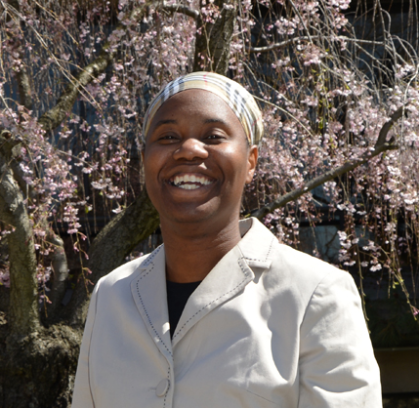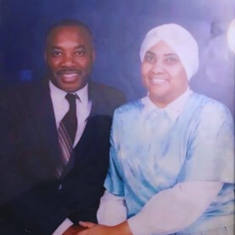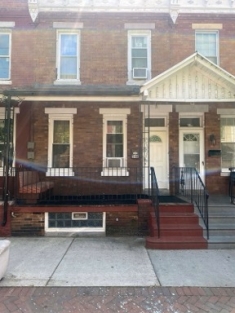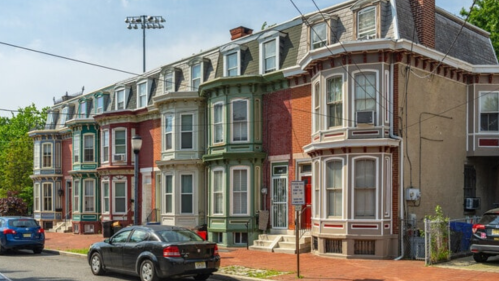Sister Anetha Perry GSC’23 is exploring the role Black Settlement Houses can play in Camden’s revitalization.
For Camden native Sister Anetha Perry, the city of her youth and present-day Camden share a strong sense of community.
"I remember going downtown and having stores where we would shop, restaurants where we'd grab a bite to eat," said Perry. "Many of the residents on the block where I grew up owned their homes.”

Perry received her doctorate from Rutgers University–Camden in 2023. Her research focused on the neighborhoods and social fabric of Camden, as well as potential policies that could drive urban restoration.
Perry brought a unique perspective to the subject of community empowerment. Raised in the Cooper-Lanning Square neighborhood, Perry’s parents were groundbreaking community leaders. They moved into Perry’s childhood home in the early 1980s and founded Perry House, a Black settlement house founded on the principles of Christian outreach.
Black settlement houses originated in the late 19th century United States, a period of significant migration of African Americans from the rural South to cities in the North. Designed to serve as community centers, settlement houses offered education, job training, and community.
Often lost in the historical retelling of settlement houses is the role Christian outreach played in their development and operation.
"The biblical commandment of loving your neighbor as you love yourself is seen as a call to serve," Perry said. "It has long been a foundational principle within the Black settlement house movement and is fundamental to the work done by these institutions.”
In 2012, Perry inherited her parents’ home, which had fallen into disrepair. Although she held onto the property, she was unable to live there. Then, in 2015, as she worked towards her doctorate at Rutgers–Camden, she saw an opportunity to apply her studies to the revitalization of the community she once called home.

Perry spent time working in the neighborhood, repairing the house, interviewing residents who knew her parents, and eventually reopening Perry House within the last year as a resource to the community.
Like her parents, Perry now offers Christian outreach and counseling. She also freely shares the knowledge and contacts she gained while rehabilitating her childhood home, helping Camden residents find affordable and reliable contractors, acquire funding from commercial and community organizations, and navigate labyrinthine city codes and requirements.
Perry came to understand how challenging it can be to reclaim a neighborhood and gained a deeper insight into community revitalization. She emphasizes that the connections she made with her neighbors and at Rutgers–Camden were critical.
“The Perry House was only able to relaunch because of bottom-up, grassroots support from the community—the people who offered their knowledge and connections to me,” said Perry.

“It continues to evolve thanks to the support I have of those around me, including my peers at Rutgers–Camden, who recently organized a GoFundMe campaign to help remove a tree that was preventing continued improvements."
Stephen Danley, associate professor of public policy and administration at Rutgers–Camden and Perry's faculty advisor during her doctoral research believes that her research offers a crucial perspective on how to engage and rebuild communities that have suffered from disinvestment and displacement over the past 50 years.
“Dr. Perry’s dissertation changed what I thought was possible in community-engaged research,” said Danley. “Her work was a groundbreaking study of Black settlement houses, and the impact was felt by neighbors and scholars alike.”
Perry is gratified that the research and work she did to reopen Perry House will have a lasting impact on those studying community revitalization. The effect it has had on her childhood neighborhood, however, is even more meaningful.
“I’m optimistic that there are pathways to creating constructive alliances between the residents and other stakeholders with an interest in neighborhood revitalization,” said Perry. “Residents need to be at the table and have a genuine feeling of investment in any revitalization effort, and a model like Perry House can help drive that engagement.”



